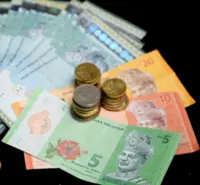
EcoWorld president and chief executive officer Datuk Chang Khim Wah.
PETALING JAYA: Eco World Development Group Bhd (EcoWorld) aims to boost its recurring income stream to between 20% and 30% of its profit after tax within the next three to five years, following its first build-and-lease data centre project secured from Pearl Computing Malaysia Sdn Bhd earlier this week.
(EcoWorld) aims to boost its recurring income stream to between 20% and 30% of its profit after tax within the next three to five years, following its first build-and-lease data centre project secured from Pearl Computing Malaysia Sdn Bhd earlier this week.
While acknowledging that selling land is easier, EcoWorld president and chief executive officer Datuk Chang Khim Wah said leasing and obtaining recurring income is an opportunity that “cannot be ignored.”
“We are a true-blue developer, meaning that we buy land, redesign it, build up the community, then sell and trade.
“But moving forward, we think that Malaysia is a mature country.
“It is time for us to look at recurring income as a base for our earnings in the long run,” he told reporters during a briefing on the group’s strategy yesterday .
EcoWorld has announced that its first build-and-lease project, covering 92 acres in Eco Business Park 5, will be leased to Pearl Computing, a unit of Google, under a triple net lease agreement for 20 years, with the possibility of a 10-year extension.
Under the arrangement, EcoWorld will receive RM4.8bil in rental income over the lease period.
“Once we finished the project, we hand it over to them – it’s their cost and we will just collect money,” Chang explained.
“We are not investing in racks, servers, or fibre. We just own the land and the building.”
To support this strategy, EcoWorld has established a dedicated team to pursue recurring income opportunities.
He said the group plans to reinvest returns from such projects into acquiring new land and expanding its build-and-lease portfolio.
He added that EcoWorld might hold on to assets for some time to capture greater value as land prices rise.
“As the land price goes up, the value goes up, the yield is there, we can sell it for a better price,” he said.
Chang outlined EcoWorld’s growth strategy based on five key pillars, with the core focus remaining on its township developments.
He described the township segment as the company’s “bread and butter, where all our DNA comes from,” emphasising that it “without a doubt, remains our solid trading bread and butter.”
To reinforce this core segment, EcoWorld acquired 240 acres in Eco Botanic Tree and 847 acres in Broga last year, with launches expected in the next six months for Johor and within nine months for Broga.
The second pillar, Eco Rise, represents EcoWorld’s expansion into high-rise residential developments.
Chang pointed out that the company had completed 9,000 units of apartments and acquired two additional parcels of land – 6.9 acres in Kajang and 8.9 acres in Kota Kemuning – for standalone projects.
Eco Hubs, the third pillar, focuses on the company’s commercial space offerings.
The fourth pillar, Eco Business Park (EBP), has seen exponential growth in recent years, with sales climbing from RM220mil three or four years ago to RM1.1bil last year.
Chang attributed this success to Malaysia’s stable political environment and favourable investment policies, noting: “EBP is an amazing pillar. We must thank the government for being stable for the last two to three years, for being open, for attracting foreign direct investments, and for making things easier. We are the recipients of these good policies.”
He also hinted at upcoming announcements related to EBP.
“You will hear us giving news about Eco-Business Park, as early as within the next week or the next two weeks – land sales, new factories in the offing.”
The final pillar, Quantum, reflects EcoWorld’s foray into data centre partnerships and land sales to hyperscalers.
Since the launch of Quantum, EcoWorld has sold four parcels of land to hyperscalers or data centre operators, accumulating RM1.6bil worth of land sales in less than a year.
Explaining the process, Chang said: “We sign the sale and purchase agreement, take the 10% deposit and place it with stakeholders.
“We develop the infrastructure, process the titles, transfer ownership, and take our proceeds as the project completes. The money can then be redeployed into other things.”
Addressing speculation on future deals, he said: “People keep calling us, asking if we have sold everything or if there are no more deals coming. We can’t answer that, but I can tell you there are a lot of enquiries – and yes, we still have land. There are deals coming.”
Deputy Investment, Trade and Industry Minister Liew Chin Tong said that while the government welcomes data centre investments, the priority is to ensure that the benefits from the entire value chain are maximised for the people.
“We want to maximise benefit from the whole value chain. On the downstream, we would like to see a lot more localisation of data centre equipment.
“I would like to see enterprises bringing in and also helping Malaysian equipment makers set up shops not too far from where data centres are, so that we create a very strong local supply chain of data centre equipment,” Liew said during a dialogue session at the event.
Highlighting the reliance on imported equipment due to the surge in data centre projects, Liew said: “At the moment, we are seeing a lot of import of data centre equipment. We would like to see the localisation of data centre equipment as quickly as possible.”










































